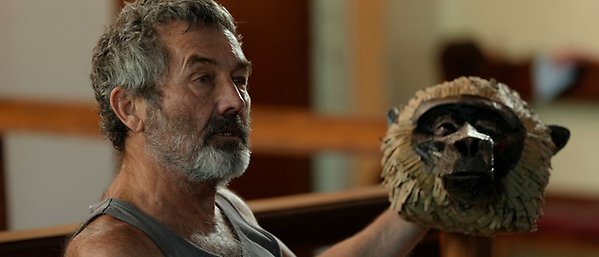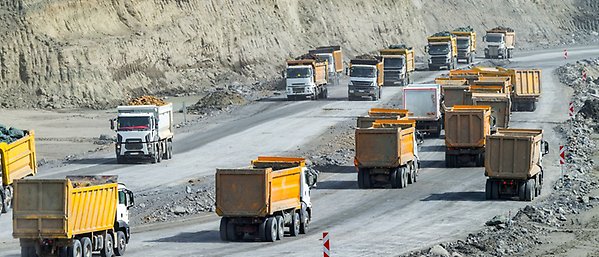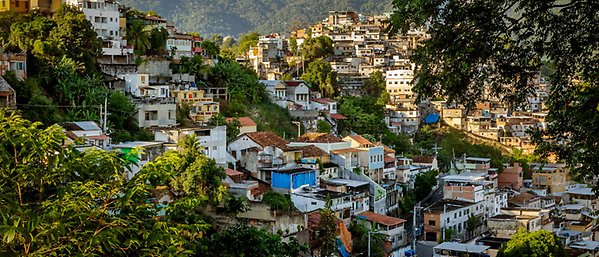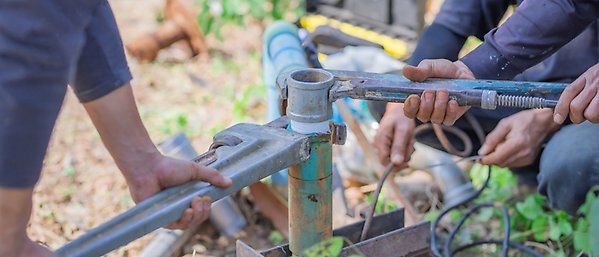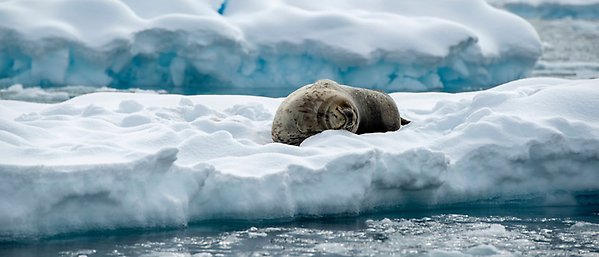Climate conference COP28
“We need to transition back within
all Planetary Boundaries”
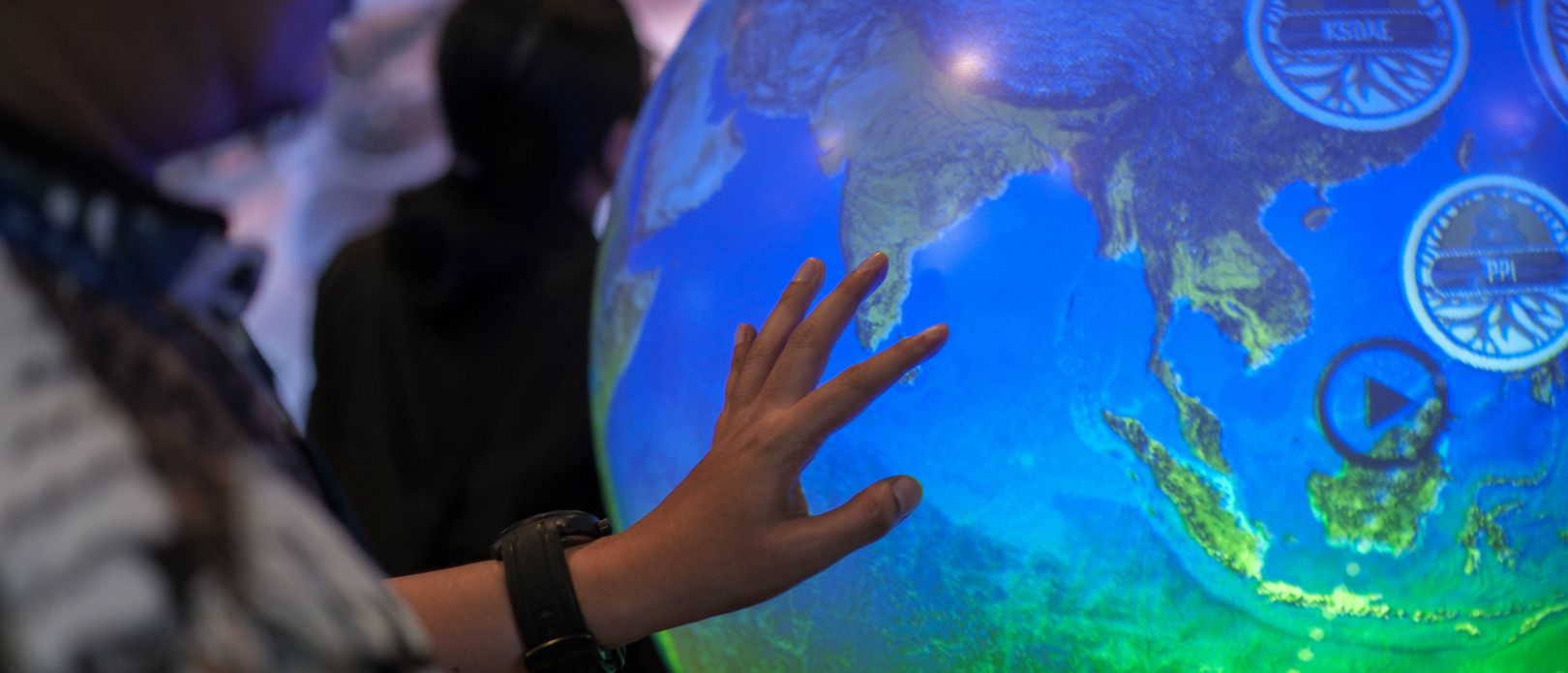
Attendees at the Indonesia Pavilion during the UN Climate Change Conference COP28 at Expo City Dubai on November 30, 2023, in Dubai, United Arab Emirates. Photo: COP28/Walaa Alshaer via Flickr.
Phase out fossil fuels, transform the food system, and remove pressures on all planetary boundaries — in a just way. Centre researchers send a clear message to all participants at COP28
Earlier this fall a new SRC co-authored study showed that humanity has now crossed six out of nine critical planetary boundaries, impacting the resilience of the planet.
"We are heading towards a gauntlet with decades of overshoot. The only way to come back is to also transition back within all Planetary Boundaries," says Centre professor Johan Rockström, who is also director at the Potsdam Institute for Climate Impact Research, and is present in Dubai for most of the COP meeting.
We need all boundaries on the safe side in order for the biosphere to buffer in the transition, and to have any chance of avoiding crossing tipping points.
Centre professor Johan Rockström
He underlines that COP28 needs to address concrete mitigation efforts to lower and remove emissions. The energy and food systems transitions are the two big transformations that need to happen to have any chance of holding the Paris agreement, Johan Rockström says.
Beyond planetary boundaries
"The world faces multiple challenges in the climate crisis, but they cannot occur as offsets against each other, they need to happen simultaneously. We need all boundaries on the safe side in order for the biosphere to buffer in the transition, and to have any chance of avoiding crossing tipping points," says Johan Rockström.
Resilient ecosystems are a prerequisite for ensuring long-term carbon uptake and storage.
"These impacts could trigger social tipping such as financial destabilization, disruption of social cohesion, and violent conflict that would further amplify impacts on people."
Centre researcher Steven Lade
Aligning biosphere conservation with climate goals is essential — and challenging, Lan Wang-Erlandsson, a Centre researcher and expert at water systems for planetary boundaries, explains. The challenge will be addressed in several sessions at the Resilience Hub, led by Centre partner Global Resilience Partnership.
Crossing tipping points
Crossing Earth system tipping points will have severe impacts on people and biodiversity, says Steven Lade. He is one of several Centre researchers that have co-authored the Global Tipping Points report, to be released during COP.
"These impacts could trigger social tipping such as financial destabilization, disruption of social cohesion, and violent conflict that would further amplify impacts on people," he says.
Crossing one tipping point might lead to cascading effects on other tipping points — which can rapidly lead to further global warming, Cibele Queiroz, a Centre researcher also taking part in the COP meeting in Dubai, further explains.
"As we go from 1.5 to 2 degrees warming, the risk that we might cross tipping points in some of the Earth’s most important regulating systems increases sharply. We need to build on the momentum generated by the Global Stocktaking to substantially increase the ambition for the upcoming new pledges for nationally determined contributions," says Cibele Queiroz.
Transformative change
Fundamental transformations across several industries and sectors are key to phasing out the use and production of fossil fuels. Not least the food system, responsible for nearly 30 per cent of emissions, is a striking example. This is also highlighted in several Centre-led panels during COP28.
The operationalization of the Loss and Damage Fund is crucial. But the current document, negotiated before COP28, is weak.
Centre researcher Cibele Queiroz
"Transformative change of the food system has been gaining momentum among the scientific, policy and business communities, but so far, not seen enough recognition at the negotiations table", Cibele Queiroz says.
Even if mitigation efforts will dominate the discussions at COP28, adaptation cannot be left behind. Both are needed together with continued work on loss and damage, Cibele Queiroz underlines:
"The operationalisation of the Loss and Damage Fund is crucial. But the current document, negotiated before COP28, is weak."
We must recognise the impacts of climate change and biodiversity loss on human rights.
Ashanapuri Hertz, programme officer at Swedbio
At this point, contributions are voluntary, meaning that major polluting countries are likely to not contribute adequately.
"For the fund to be effective, impacted communities need to get direct access, bypassing the complexity and bureaucracy that characterises other existing climate funds, managed by Western NGOs or large consultancy firms," Cibele Queiroz explains.
Values and injustices
The inequities and injustices that are perpetuated by the climate crisis are an existential threat that must be recognised and avoided at all costs.
"We must recognise the impacts of climate change and biodiversity loss on human rights, and that actions to address the twin crises should be consistent with human rights standards and principles," underlines Ashanapuri Hertz, participating at COP28 for the Centre-supported development programme Swedbio.
"The biggest priority remains a rapid, but just, phase-out of fossil fuels. This cannot be undertaken without reconfiguring value systems, including how colonial modernity has led to how people relate to each other and to nature," says Laura Pereira, Centre researcher also present in Dubai for COP28.
The biggest priority remains a rapid, but just, phase-out of fossil fuels. This cannot be undertaken without reconfiguring value systems, including how colonial modernity has led to how people relate to each other and to nature.
Centre researcher Laura Pereira
The longer that inaction remains the default, the more will be lost. But now is not the time to succumb to a feeling of hopelessness, Laura Pereira says.
"Thankfully, around the world, there remain value systems that can be used to inspire these pathways, such as ubuntu from southern Africa, buen vivir from Latin America and the Maōri concept of kaitiakitanga. Now is the time to find the transformative pathways that are needed to get onto a better trajectory for people and planet," she concludes.


